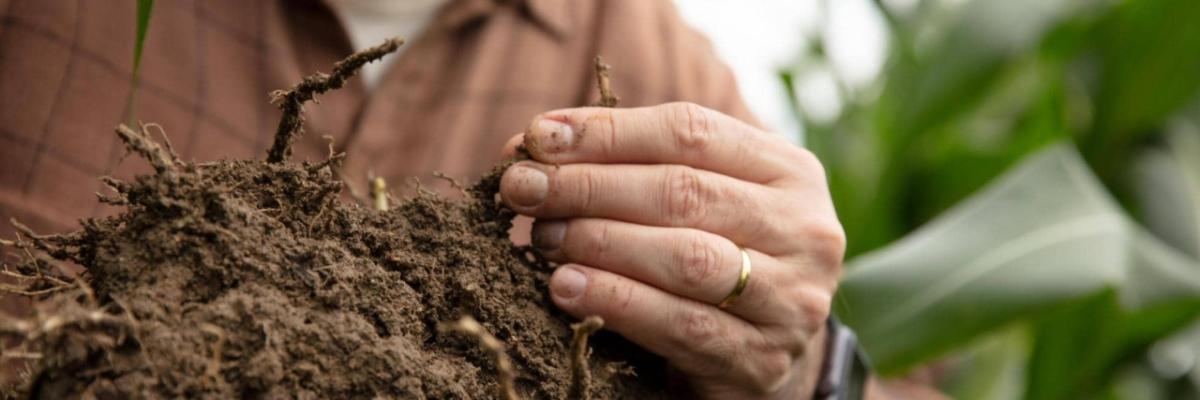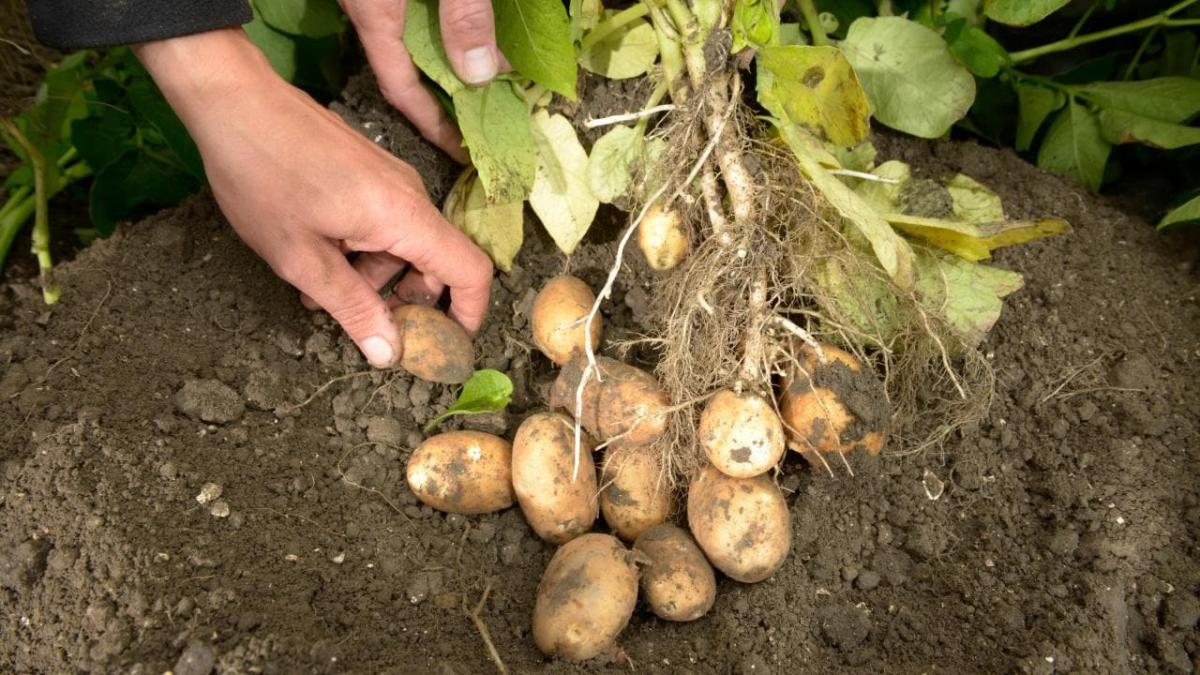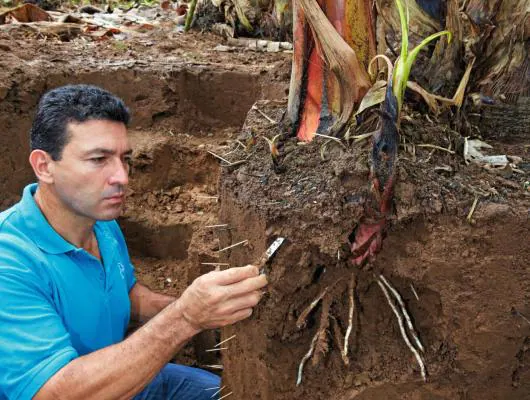Bayer: Looking Below Ground Level With Root2Success: Managing Root Health in Horticulture Crops in a Sustainable Manner
Agricultural productivity is enormously complex. The success of each crop grown on a field depends on countless variables, including climatic factors, nutrient and water availability, pest and disease populations, crop protection inputs, on-farm practices, and more. Since we cannot see what happens below ground, an additional obstacle for growers is that they have no opportunity to inspect the quality of the plant’s root system during the growing season.
This is particularly important because roots play a crucial role in supporting plant health and crop yields. In fruits and vegetables, root systems affect yield and quality by 30-50%. A well-developed root network absorbs a greater volume of water and nutrients from the soil; it anchors the plant and protects it against the weather; it can store energy for growth; it interacts beneficially with a range of biotic and abiotic factors. But this does not happen automatically. Just as we pay attention to many visible indicators of foliar plant health, we must also work to secure the health of our plants’ roots, protecting them from pests, diseases, nematodes, and stresses.
That is where Root2Success comes in: our tailored solution specifically developed to promote root health. It comprises a convenient package of seeds, crop protection products, biologicals, digital tools and other support services, curated at farm level. Improved root health maximizes plant productivity, resulting in higher marketable yield for growers, while minimizing environmental impact.
What makes Root2Success work?
While many products or practices could make a difference to root health in isolation, Root2Success is a holistic approach. It uses a full toolbox of innovations to meet soil challenges on a localized, custom basis.
The Root2Success toolbox starts with seeds and rootstocks from the De Ruiter and Seminis portfolios, selected for yield potential and climatic suitability. Supporting these are crop protection products, including biologicals, complemented by a digital support tool, Nematool. Depending on local conditions and backed up by research data, the program is designed to best fit grower needs. As such, growers might choose a combination of Serenade, a biological fungicide; BioAct, a biological nematicide; Velum (Verango), a small molecule nematicide; Previcur Energy, a powerful solution for disease control; or Emesto Prime for control of Rhizoctonia fungi.
However, supplying customized product packages is only a half of the equation. Root2Success is also about using these products in the most efficient, sustainable way. That is why the concept also involves the use of a drip irrigation system. The growers who participate in the program use drip irrigation systems to water and feed their crops with nutrients.
Once you have calibrated it for optimal delivery of water and nutrients, it stands to reason that you can also use it for optimal delivery of biological and chemical crop protection products.
Albert Schirring , Bayer strategy lead for vegetable crops
In partnership with irrigation specialist Netafim, Bayer created a training module for growers on how to calibrate their drip irrigation system.
Another practice Root2Success helps growers adopt is solarization: When sunlight heats the soil to high temperatures for a certain period, nematodes and fungi are eradicated without needing to apply chemical products. With the help of the temperature-based soil-sensor Nematool, growers receive real-time temperature data on their field.
Another practice Root2Success helps growers adopt is solarization: When sunlight heats the soil to high temperatures for a certain period, nematodes and fungi are eradicated without needing to apply chemical products. With the help of the temperature-based soil-sensor Nematool, growers receive real-time temperature data on their field.
This practice has actually been around for 30 years, but for most of that time it was not popular because of the costs involved. But now, especially in Europe, strict regulatory landscapes are reducing availability of crop protection products for the control of soil-borne pests and diseases, and growers are starting to rediscover soil solarization.
That’s why we are working to make this technology available to all growers who are interested in it, and to spread awareness of the best ways to use solarization to control pests and diseases.
Albert Schirring , Bayer strategy lead for vegetable crops
In fact, Nematool can be used for more than just tracking solarization. The data it generates can also be used during the growing season to gauge the timing of nematode outbreaks. It sends alerts to the grower’s smartphone, saying, “The critical nematode development stage has been reached – now is the right time to apply products,” or, “The soil temperature was not reached – please check solarization levels.” Either way, it powers smarter, timely and better decisions in growers’ fields.
Evolution and expansion
Root2Success has already undergone many improvements since its inception in 2016. Starting in Mexico, it has been taken up in the Mediterranean region, from Morocco to Turkey. And it is going further still: Australia, Brazil, South Africa and Chile are among the countries conducting research into how Root2Success will work for them, aiming to replicate the successful field results to further develop the concept. Its crop portfolio is growing too: from tomatoes to peppers, potatoes, onions, melons, and cucumbers, with many more – including citrus, banana, apple and grape – coming into focus.
All this means more growers and more partners coming on board, too. A partnership with PepsiCo in Mexico has even broader horizons, employing Root2Success as part of an overall sustainable production concept that optimizes soil health and root health, boosting the performance of the crop while enrolling growers in certification schemes that demonstrate their knowledge in these subjects. Similar partnerships are being created in other countries, making the concept accessible to more and more growers.
Why is Root2Success so well-received?
“Because”, says Albert, “it puts the benefits for growers at its heart. What we do with Root2Success is to simplify on-farm operations, make what happens in the soil more visible, and identify ways to optimize when to apply different biological- or chemical-based crop protection products, together with improved genetics. Firstly, this secures marketable yield and quality; at the same time, it reduces environmental impacts of the crop protection being used; and it ensures that over time, root and soil health will improve, so we can sustain yields for the long term.”
Root2Success embodies the principle of regenerative agriculture: not just protecting roots but also healing them and activating their natural potential, so they can improve plant health year on year, while saving natural resources and sustaining soils. It’s a powerful concept – and it is ready to go global.
View original content here.




